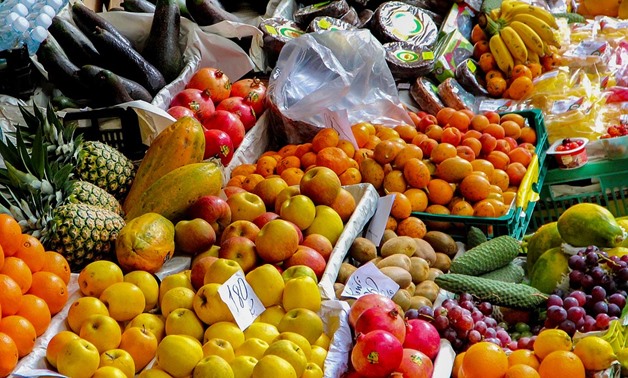
Fruits- CC via pixabay/whitesession
CAIRO – 9 September 2018: In light of the hike in the prices of fruits, an initiative has been launched to boycott buying the products from retailers to force them to lower the prices.
The boycott campaign started on September 1, and will last until September 7.
According to the latest announced prices, guava ranges from LE 15 to LE 25, grape from LE 20 to LE 25, Normal species of mango vary from LE 20 to LE 50, dates cost from LE 10 to LE 20, and figs array from LE 15 to LE 25.
Moreover, the prices of pears vary from LE 20 to LE 30, Bananas from LE 20 to LE 30 and imported apples from Lebanon cost from LE 25 to LE 40.
The campaign named “Let It Rot” appeared within the Egyptian Society to face the greedy traders, according to the campaign's supporters.
Social Media
Citizens interacted with the campaign on social media. Here are some of their tweets and posts:
Some of them saw that the campaign started to pay off:
The voice of citizens
“We cannot totally stop buying fruits as my children got used to eating fruits all the time,” a housewife called Huda Said.
Huda added that she minimized the amount of fruits she buys, clarifying that instead of purchasing different kinds of fruits at the same time, she buys only one kind at a time.
Hosnia, who is a working woman, agreed with Huda, saying that she only buys what she has to buy as she can’t deprive her children from eating what they want to eat.
On the other side, Mohamed said that he buys fruits anyway, ignoring the boycott. Also, Marina said that she depends on fruits to improve her hemoglobin level, so she is not following the boycott.
Hussein said that although he thinks the campaign must go on and hopes it succeeds, he only supports it morally.
He also added that he buys small amounts because of the high prices, noting that the prices started to decrease.
The reaction of the official organizations
After the initiative was launched, the Egyptian Union for the Organization of Boycott Campaigns joined the cause, demanding organizers and activists on social media to unite in organizing the latest boycott of fruit and vegetables to reach positive results.
For his part, Chairman of the Association of Citizens against High Prices Mahmoud al-Asqalani, said that the association joined the campaign to boycott fruits and vegetables due to their firm belief in the inevitability of consumer action in the face of high prices and monopoly, especially in light of the failure of Parliament and the government to find legal texts that protect consumers in the presence of the so-called non-truth in the free economy.
Asqalani emphasized the importance of meeting the deadline to end the campaign by the end of the week so that the supporters of the boycott study its pros and cons.
According to Asqalani, the campaign began to succeed where leaders in the markets of Obour and 6 October confirmed that prices, especially prices of fruits, fell significantly, noting that it means trailers started to fear the results of the successful campaign.
Ministry Of Supply & Internal Trading
Minister of Supply and Internal Trading Ali Moselhy said that although he is against the rise of the prices, he doesn’t support the boycott campaign.
Moselhy added that a wholesale market will be opened in every province where citizens can find their needs, whether wholesale or retail, and the prices will be set to eliminate market manipulation and make it easier to provide citizens with services.
For his part, Chairman of Farmers Syndicate Hussein Saddam said that the boycott is not the solution to control high prices, noting that the real reason behind the high prices is the short supply versus high demand as most of the fruit crops were exposed to pests that eliminated half of the mango crop and 60 percent of the apricot crop, and the rest of the fruits were affected by different percentages.
Saddam believes that one of the main reasons for the rise in prices is the increase of the prices of agricultural production inputs such as fertilizers, seeds and agricultural machinery.
The export of some crops leads to increased prices in the local market; additionally, the distance between markets and places of production, the high cost of transport and the multiple stages of distribution to the consumers, in the absence of control, all contribute to the prices' hike, he added.

Comments
Leave a Comment